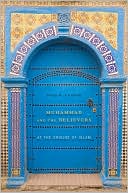Muslim Extremism in Egypt: The Prophet and Pharaoh
Gilles Kepel takes us into the world of the students, professionals, workers, and unemployed who are caught up in the Islamic movements of Egypt. Events that have riveted world attention—the first World Trade Center bombing, assassinations in Beirut, the attempt on the life of the Pope, the assassination of Sadat, and, in a new preface, the terrorist attacks of September 11, 2001—are illuminated by this penetrating study.
Search in google:
"Perhaps more than any other, this book gives the background necessary to understand the purpose and mindset of today's religious radicals. In this classic study of the roots of Islamic extremism, Gilles Kepel demonstrates the pivotal role of the Egyptian connection. He skillfully traces the story of Islamic anti-modernism in Egypt from the early part of the 20th century to its tragic involvement in some of the most violent incidents in recent years, including the terrifying attacks on the World Trade Center in 1993 and 2001. Kepel's treatment is even-handed and sensitive, though the world he uncovers is the dark side of today's global culture."—Mark Juergensmeyer, author of Terror in the Mind of God: The Global Rise of Religious Violence Library Journal Within the past decade, a wave of religious fundamentalism has surged through the Islamic world. With the assassination of President Anwar Sadat as a focal point, Kepel examines the ideologies and activities of several Egyptian fundamentalist groups over 30 years. He describes the small but devoted religious groups determined to replace their barbaric regime with a government devoted to the true principles of Islam. The fervor of the Islamic revolutionaries, however, was equalled by their political naivete, and their success in killing Egypt's president led only to arrests and continued powerlessness. Although sympathetic to their religious concerns, Kepel asserts that most of the zealots were motivated more by the hopelessness and poverty of Egyptian life than by a desire to replace a modernist regime with pure Islam. A reliable, scholarly study of an important phenomenon. Elizabeth R. Hayford, President, Assoc. Colls. of the Midwest, Chicago
Preface to the 2003 EditionPreface: The Roots of Islamist Movements9Introduction: Journey to the Ends of Islam211From One Ordeal to Another: 1954-6626In the Beginning Were the Camps27The 1955 'Plot'312'Signposts'36Sayyid Qutb, Author and Martyr38Islamicism or Barbarism43What Is to Be Done?52The Ulema Intervene59Appendix: Works of Sayyid Qutb683The Society of Muslims70And God Came to Shukri71The New Hegira78Living Together in the Prophet's Way86Death of One of the Ulema914'Al-Da'wa': Legalists Despite Themselves103The Purse-Strings107The Four Horsemen of the Apocalypse110Making Good Use of Parliament1245The Vanguard of the 'Umma'129The Student Revolt130The 'University of Large Numbers'135In the Shadow of the Regime138Changer la Vie141How to Be a Good Muslim147For the Good of the Copts156June 1981: Checkmate1646The Sermons of Sheikh Kishk172A Sheikh's Childhood174The Friday Sermon1777To Assassinate Pharaoh191The Modern Tartars194Holy War Against the Infidels197Carrying Out God's Orders199Killing Christians204To Assassinate Pharaoh210Conclusion223The Religious and the Political226Is the Islamicist Movement Inevitable?231Facets of a Utopia236Afterword: Ebb and Flow, 1981-1985241The Carrot and the Stick243Depoliticizing Islam246Electoral Strategies249Modes of Preaching251Sources259Chronology: 1928-1992265Index275
\ Library JournalWithin the past decade, a wave of religious fundamentalism has surged through the Islamic world. With the assassination of President Anwar Sadat as a focal point, Kepel examines the ideologies and activities of several Egyptian fundamentalist groups over 30 years. He describes the small but devoted religious groups determined to replace their barbaric regime with a government devoted to the true principles of Islam. The fervor of the Islamic revolutionaries, however, was equalled by their political naivete, and their success in killing Egypt's president led only to arrests and continued powerlessness. Although sympathetic to their religious concerns, Kepel asserts that most of the zealots were motivated more by the hopelessness and poverty of Egyptian life than by a desire to replace a modernist regime with pure Islam. A reliable, scholarly study of an important phenomenon. Elizabeth R. Hayford, President, Assoc. Colls. of the Midwest, Chicago\ \








